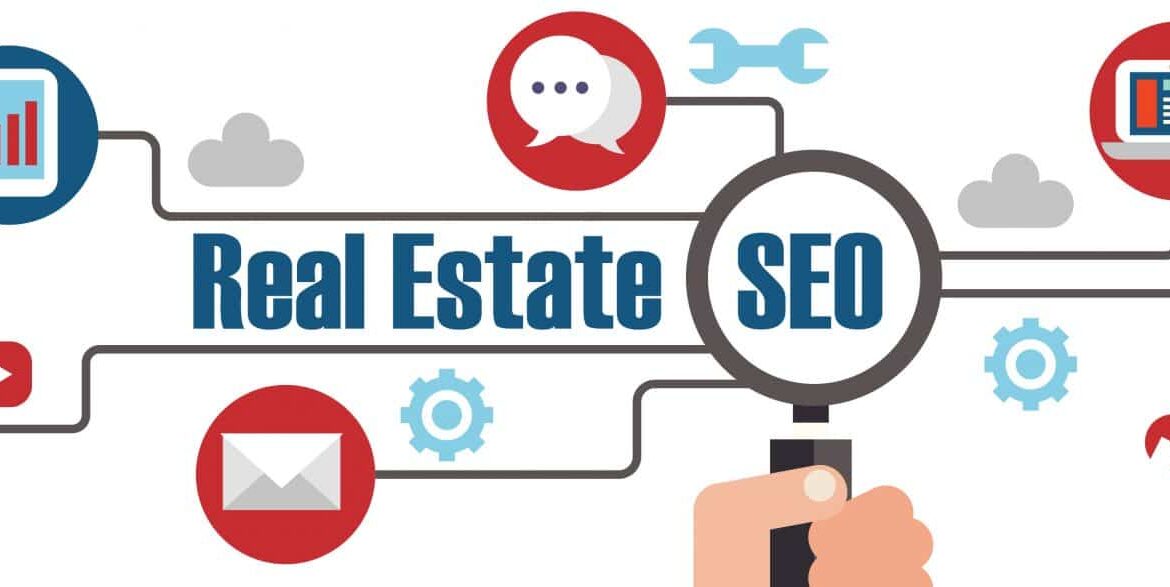You’ve printed the business cards, you’ve attended the networking events, you’ve put up lawn signs and followed all the other traditional marketing advice. You even have a nice website and paid for some online advertising. But still somehow, the competition is getting more internet leads than you. Are they luckier than you? Is it a waiting game? Maybe you should change your profile picture? Not likely. It’s probably because those potential clients aren’t finding you as often. Odds are, you haven’t tapped into the very lucrative Real Estate SEO game.
What is Real Estate SEO? There’s a lot that goes into it, so let’s start with the basics. The first thing you need on your website is more strategic content.
What is SEO Content?
To understand SEO content, it’s easier to it break down into two parts:
- SEO (a term you’ve heard many times) stands for Search Engine Optimization. Ever use Google? Then you’re familiar with search engines. The optimizing part is just packing a website full of strategic material, resources and tools, to make it more easily found on search engines.
- Content just refers to any information or media that exists on the internet and can be consumed on the internet. The most pertinent for you are probably:
Property listings, videos, photos, blogs, testimonials, how-to guides, discussion forums, and links to external sources.
When you put the two together: “SEO content” is simply any strategic material posted with the objective of attracting more search engine hits to your website. You’ve been producing Real Estate SEO type content your whole career, whether you knew it or not.
What are Search Engines looking for?
Search engines are complex software systems designed to seek out information on the World Wide Web, finding people what they need quickly and accurately. The results are usually presented in a vertical list, normally referred to as SERPs (or search engine results pages). Those results are often a mix of web pages, images, and other types of files. Naturally, only so much fits on a screen, and users always read from the top-down, not usually scrolling too far down. One such search result may be your listing as a real estate Broker in your local area. This is your bread and butter and you want to be near the top! Enter Real Estate SEO strategy.
It’s very important for you to understand the basics of how Google (and other search engines) determine what gets ranked, and how high. In other words, what can be done to boost your website’s Google ranking.
1- Rich, Unique, Relevant Content
Search engines crave fresh, new content that doesn’t resemble anything existing, and is most relevant to the keywords entered. They look for the newest and most pertinent content each time a search is performed. If your website hasn’t been updated in a while, you can bet someone else’s content will rank higher. A great way to avoid losing out on this traffic is regularly adding new content (such as a blog article). Minimum is once a month. More often is better.
Rich means in-depth and as informative as possible on the subject matter. Imagery, keywords, and statistics help a lot. Yes, Google can actually judge the quality of what you’re writing!
As for the “unique” part, search engines disregard what they perceive as duplicate content, or what’s too repetitive of material already out there. You’ll almost never see results where exactly the same article gets listed multiple times in the same search. Search engines filter this type of pattern out because they know users are happier with more distinct variety in their search results. So if you are writing about the same subject more than once, find ways to make it different each time. Definitely no copy/paste from your own material or someone else’s.
2- Quality Link Building
When someone on a different website creates a link to a page on your site, this is called “Link Building”. Usually it means they found something original and noteworthy, and want to make reference to it for their own audience. This gives you what’s called a “backlink”. Link Building is one of the free strategies used in improving Real Estate SEO. These links are an indicator to Google that your website contains quality content, and is worthy of a visit. As such, websites with more backlinks attached will earn higher rankings in search results.
If you’re not sure how to accomplish this, a professional SEO agency ready for your marketing objectives can help.
3- User Experience: Easy to navigate, Fast downloads, Mobile friendly
No one likes a website that’s a struggle to navigate. Slow, spotty, failed page downloads and confusing menus or other obstacles definitely count against you. These days, the experience needs to be sharp, quick and precise, or your visitors won’t come back. This is true not only in the hands-on experience that visitors enjoy, but in search engine ranking too. You’re not likely to get repeat traffic from either source if it’s frustrating to navigate your site.
This is especially important on mobile browsers in 2018. Internet usage on cell phones, tablets, notebooks, and the like is only growing with time. With users doing more on mobile, focus is now on how to improve all elements of a mobile user’s experience during their interaction with your site.
The best thing for a mobile website owner (to enhance Real Estate SEO) is to keep it simple. Simple design, layout, menu configuration, and even limiting information overload. Keep things easy to read and access, and don’t try to cram too much in there.
4- Internal Linking
What is an internal link? Hyperlinks that go from one page on a website to a different page on the same website, commonly used in the main navigation. They are useful in Real Estate SEO for 3 reasons:
- Allows users to navigate more easily (than rolling through menus).
- Establishes the “pecking order” (level of importance) of your information.
- Spreads the ranking power around (instead of having it all clustered together).
Best Practice for SEO: when planning your real estate website design, keep in mind an architecture which allows for many internal links.
5- Meta Descriptions and Title Tags
The meta description is a short blurb or “snippet” which summarizes a page’s content, 160 characters or less in length. Search engines display the entire meta description in their search results, especially when the keywords being searched are found within. A strategic meta description is very important for on-page optimization and Real Estate SEO in general.
The purpose of meta descriptions is to get the search engine user to take notice and select your page (or produce “clickthroughs”). If more people click your page than is expected —based on your current ranking— then you move up the ladder.
A title tag is an HTML element that identifies the title of that web page, and are intended to be a short, precise reflection of what the reader will find there. Title tags are shown on SERPs as a clickable headline, and are vital for SEO, social media shares, and usability. Google normally displays 50 to 60 characters of a title tag. Staying within this limit allows for most titles to display fully, as a first step towards title tag optimization.
6- Local SEO
Local SEO is an important real estate marketing strategy. It helps real estate Brokers promote their listings and services to local clientele in the right areas, at the moment when they’re shopping for them. Local SEO uses several strategies to get your website ranked on search engines like Google, business directories such as YellowPages, 411.ca, and Yelp, and online citations. They’re simple ways to dominate local search. Among these strategies are Google My Business, client reviews, structured data markup, third-party local citations, and tagging photos by region.
Millions of consumers use geography-based searches every day to find the best Realtors in their area. You greatly increase your chances of being found on digital marketing platforms by using local SEO.
7- Social Media Presence
The benefits of social media for real estate Agents are limitless, and all serious professionals should have a significant online presence by 2018. Social networking platforms provide a resource to interact with your local clientele and pertinent business groups remotely. It bolsters your marketing efforts and overall Real Estate SEO by building popularity, gaining trust, and spreading your name throughout the networks of current clients.
How to do it? Start with the basics like Facebook, Twitter, Instagram and Pinterest (if not more) and create pages for your business which are dedicated and separate from your personal profiles. Use Facebook to market yourself first, and then your property listings (including pics, descriptions, and links to reach you). Use Twitter for announcements, to direct followers to your blog, and stay in the public eye. Use Instagram to dazzle them with more imagery and videos, and attract more followers. Set up a Pinterest Business Account for even richer photography, tips, advice, and to capture an audience by category of interest.
All of the above should also be directing potential clients to your website, and vice-versa.
8- Google My Business
A Google My Business (GMB) profile is crucial to boost your Local Real Estate SEO. It’s offered for free and will get your business displayed in local search results for inquiries specific to real estate needs. Even wide searches with high volumes are currently presenting local area results through GMB, since search engines know where the user is located even if they don’t specify it.
The increased visibility Google has placed on Google Local Listing results makes it even more helpful to local firms like yours. Searches on mobile devices (which we know are gaining in volume) now only display organic results below the fold, and need extra scrolling to be viewed. Often, only the top 3 Google Local Listing results are shown, so there is a huge advantage to being listed here for highly competitive searches.
Without GMB, you won’t appear on any local map listings which Google displays for most area-specific queries. More and more, you’ll be extremely hard to find if you don’t create a GMB page for your local business.










